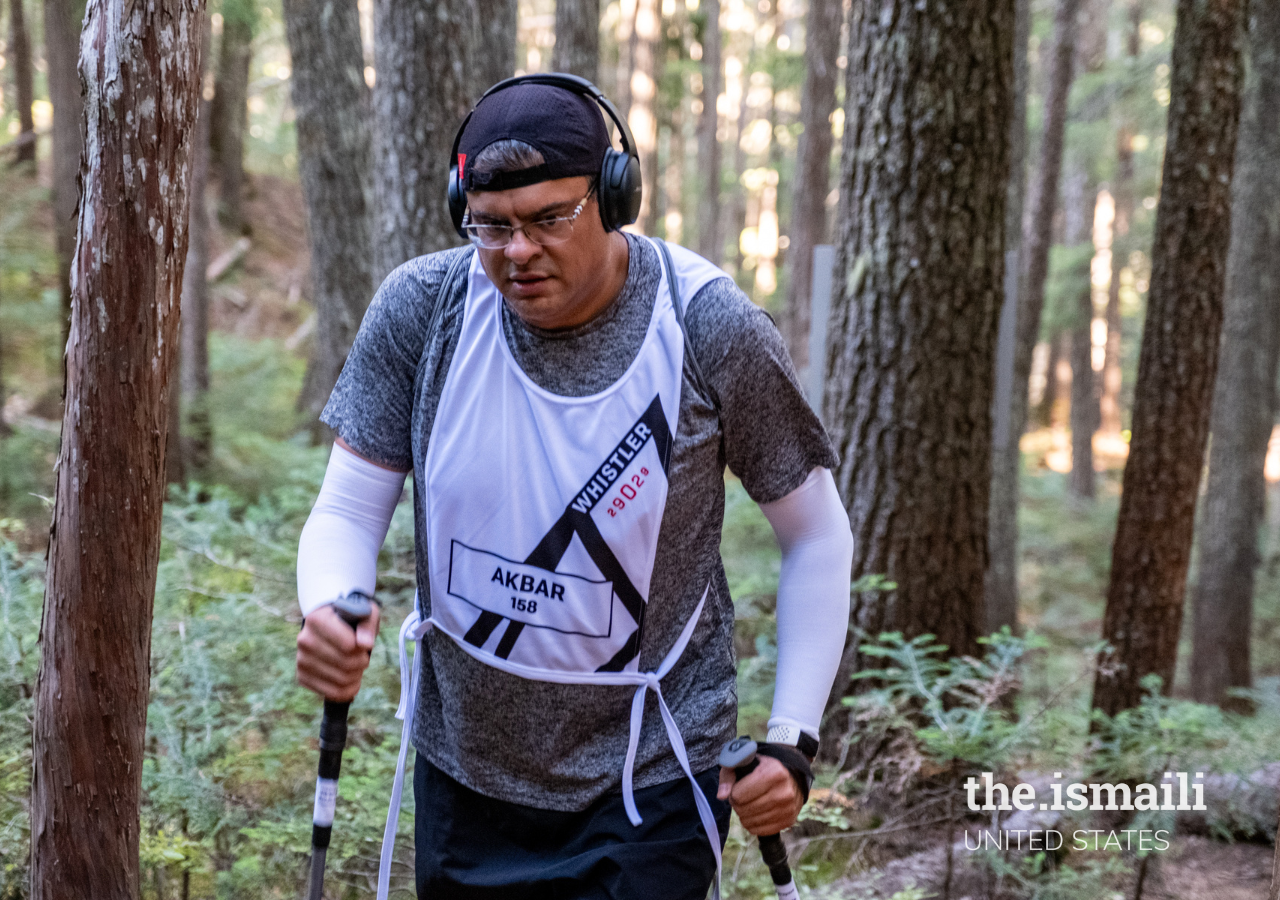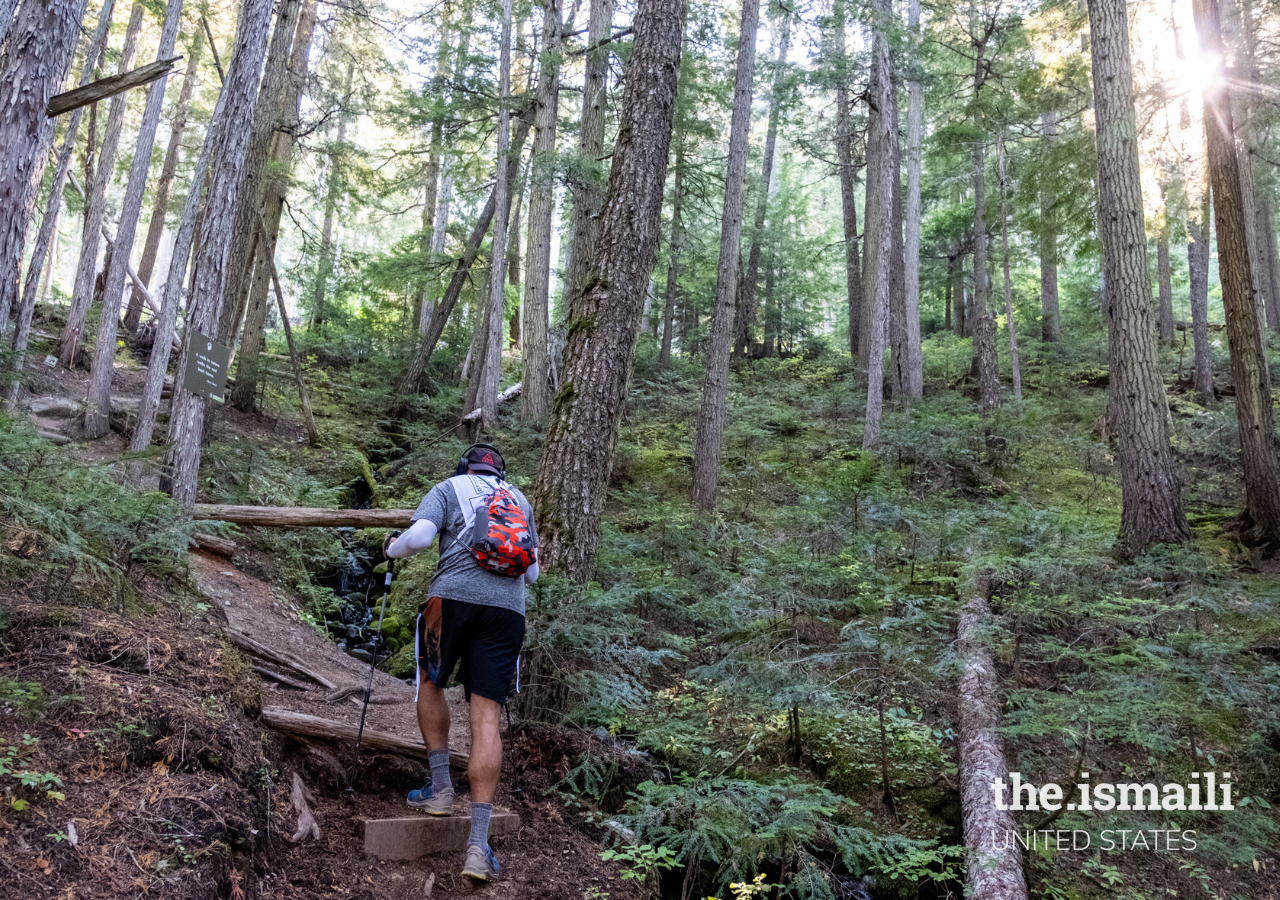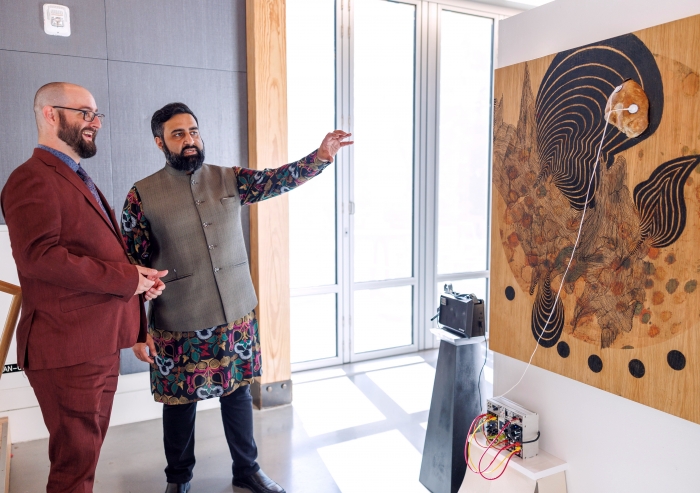Life is riddled with challenges, fears, and the occasional bout of faltering confidence.
But unlike most who fall prey to self-doubt and let it consume them, Akbar Kassam, a resident of Atlanta and financial advisor by profession, experienced this phenomenon – and learned to beat it. It all started when he read a book called Living with the Seal, which chronicles an entrepreneur’s 30-day journey of living and fitness training with a Navy SEAL.
Inspired to take on a fitness challenge himself, Akbar booked a ticket and joined a group in Vermont to climb Snow Basin,a mountain that, after a certain number of ascents, equals the same height as Mount Everest. The venture, popularly known as Everesting, was Akbar’s first such experience. On his first go around, self-doubt crept in, and after convincing himself he didn’t have the stamina to pull through, Akbar decided to quit.
However, he didn’t walk away happy with this decision. When he reached home, disappointment settled heavily in his heart, and pretty soon, all he could think about was why he’d given up. After some thought, Akbar decided to try again. This time, eager to persevere, he was keen to prepare beforehand.
While Everesting, he met Coach Brent, who he decided to work with to ensure his success this time around. Not only did Coach Brent set to work training him physically, but he also focused on Akbar’s mental preparedness, advising him to have a positive mindset and belief that he could achieve any goal he set his mind to. The key, he said, was believing in yourself and ignoring the negative voices in your mind.
After conditioning him to establish a positive mindset, Coach Brent encouraged Akbar to do a variety of physical activities that would improve his chances of being able to scale the same height as Mount Everest. Each day, he provided Akbar with an assignment, such as climbing Stone Mountain four times, which totaled approximately four to five hours, completing 10 miles of outdoor walking, or doing the treadmill on an incline of 15 for three hours. One of Akbar’s more challenging assignments involved hiking uphill with a 20 lb. rucksack on his back for four hours.
However, the challenges didn’t only exist in the exercises alone. They were also present in things like waking up at 3 a.m. so Akbar could complete a hike on time, or in spending time away from the family on non-working days, and spending a work day plus extra time training on days when he did work.
Akbar recalls one of his most challenging days consisting of climbing Stone Mountain with a friend in scorching 105 degree weather. On his fifth ascent, he recalls his heart racing unusually fast with no sign of slowing down, making him lightheaded and fearful that he would pass out.
By the time Akbar decided to Everest for the second time, he was better equipped and prepared for the challenge. This time, he ventured to Whistler Mountain in British Columbia, where, again, a certain number of ascents would total the height of Everest. His journey up the mountain started at 6 a.m. on a mild, sunny, and beautiful Friday morning. Dressed in shorts, he was careful to keep hydrated on water and electrolytes with a fresh stash of protein and salty snacks on hand.
Image 14

As the sky darkened into the evening, Akbar continued his journey using headlamps to illuminate the path ahead. The higher up the mountain he climbed, the lower the temperature dropped and the stronger the wind whipped around him. By Saturday, it began hailing, which soon gave way to snow. Although the inclement weather hindered Akbar from attaining his goal of reaching Everest’s height as he had intended, he did achieve the height equivalent of Mount Aconcagua, the highest mountain in the southern and western hemispheres – and a huge accomplishment from where he’d first started. This accomplishment redeemed his months of training, sweat, and sacrifice, making them more than well worth it.
Reflecting back, Akbar acknowledges that his goal was never to climb Mount Everest itself – rather it was to constantly challenge himself, break beyond his comfort zone to test his limits, and achieve the things he’d resigned as unachievable, even impossible. With support from his coach, wife, children, parents, and friends, Akbar was able to overcome the largest and most difficult barrier of all–the mental barriers we all at some point or another, face in life. Drawing inspiration now from his own achievements, he continues to push himself in myriad ways, including enrolling in business school and, soon, signing up to run a marathon.
For those who would like to consider Everesting, Akbar offers sage tips. His first piece of advice is to ask yourself why you want to Everest. “Having a purpose before starting is important and improves your odds of achieving the goal you set out,” he says. He also suggests preparing and training for the challenge. Without proper training, climbing a mountain the equivalent of Mount Everest may prove impossible.
“Equally as imperative,” says Akbar, “is knowing what to eat (protein and salt), what quantities of water and electrolytes to intake, and how to control your heart rate.” But beyond the obvious, Akbar stresses the importance of a key make-or-break factor that was the driving force behind his own perseverance and success: a positive attitude.
“Your mind is a powerful muscle,” says Akbar. “It has the ability to change your entire outlook–and if you let it–your life.”










